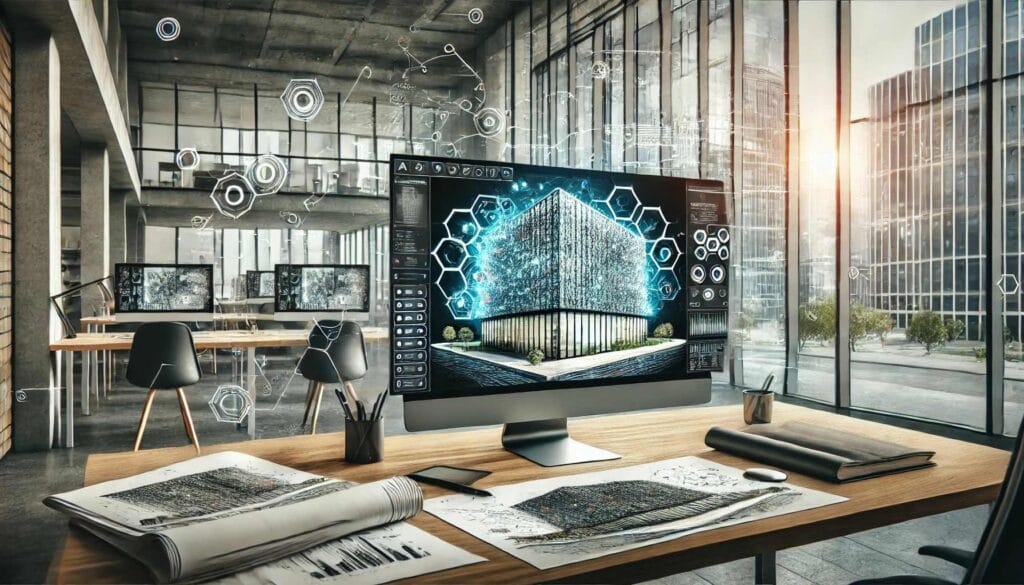The Role of Artificial Intelligence in Architecture

Artificial Intelligence (AI) has increasingly found its way into the architecture industry, revolutionizing design processes, improving efficiency, and enabling new possibilities for creativity. From generating design alternatives to optimizing construction, AI is reshaping the way architects and designers approach their work.
AI in the Design Process
One of the key areas where AI is making a difference is in the design process. Traditionally, architects would sketch out multiple design ideas, consider spatial configurations, and experiment with various aesthetic elements. AI has streamlined this process by offering algorithms that can automatically generate design options based on input parameters. These parameters can include spatial requirements, building codes, environmental conditions, and even aesthetic preferences. AI tools like generative design and machine learning can analyze vast datasets to produce innovative and efficient building designs that might not have been considered otherwise.
For example, Autodesk’s generative design software allows architects to input a set of constraints, such as the purpose of the building, its location, and materials, and then the system generates numerous design alternatives. Architects can then evaluate these options, selecting the best one for their project’s goals.
Optimizing Energy Efficiency and Sustainability
Another significant contribution of AI to architecture is in sustainability. AI tools can analyze environmental data such as climate patterns, sunlight exposure, and wind conditions to optimize building energy efficiency. This helps architects create designs that reduce the carbon footprint of buildings by incorporating passive design strategies, efficient heating and cooling systems, and renewable energy sources. AI can also monitor building performance over time, offering insights on how to improve energy consumption and reduce waste.
For example, AI-powered building management systems can automatically adjust lighting, heating, and cooling based on real-time occupancy and weather data, ensuring that energy is used more efficiently.
Enhancing Construction Management
AI is also transforming the construction phase of a project. Construction management tools powered by AI can predict potential delays, optimize resource allocation, and manage supply chains more effectively. Machine learning algorithms can analyze historical data to predict the likelihood of delays due to weather conditions, material shortages, or labor issues. This predictive capability allows for more proactive decision-making and better management of project timelines and budgets.
Additionally, AI-driven robots and drones are being used for tasks such as surveying sites, monitoring construction progress, and performing quality checks. These technologies can help reduce human error and speed up the construction process, leading to cost savings and more efficient project delivery.
AI and Building Maintenance
AI’s influence doesn’t end once construction is completed. Building maintenance is another area where AI is having a profound impact. Smart buildings equipped with AI sensors can automatically detect issues such as water leaks, HVAC system malfunctions, or electrical failures. This allows for early intervention and more cost-effective repairs, which can extend the lifespan of the building and improve its overall performance.
Furthermore, AI can help building owners and managers optimize building operations by analyzing data from a variety of sources, such as energy consumption, security systems, and tenant feedback. This data-driven approach enables better decision-making and the ability to anticipate problems before they arise.
Challenges and Ethical Considerations
While AI brings numerous benefits to architecture, it also presents challenges and ethical concerns. One of the major concerns is the potential for job displacement, as automation and AI-driven technologies could reduce the need for certain roles within the architecture and construction industries. Additionally, there is the risk of over-reliance on AI, where human creativity and intuition may be sidelined in favor of purely data-driven solutions.
Ethical concerns also arise regarding data privacy, especially when using AI to monitor building performance or track occupant behaviors. It is crucial for the architecture industry to balance the advantages of AI with considerations of privacy and ethical practices.
Conclusion
AI is transforming architecture in profound ways, offering new tools for design, optimization, and construction. As AI technologies continue to evolve, architects will increasingly be able to leverage these innovations to create more sustainable, efficient, and creative buildings. However, it is essential to approach these developments thoughtfully, ensuring that AI is used to complement, rather than replace, human expertise in the field.
Source : Medium.com




